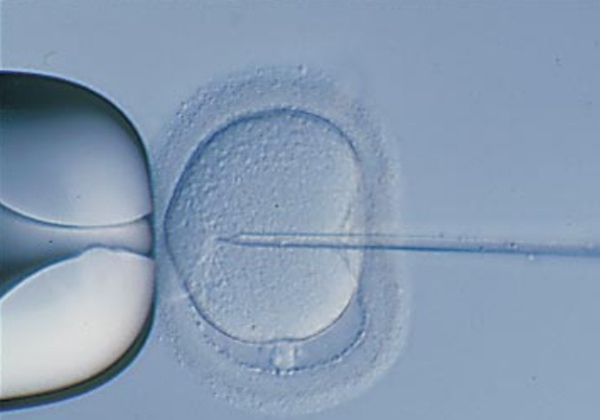Common Causes and Approaches to Managing Failure of IVF (In Vitro Fertilization)

试管婴儿(IVF)技术为许多不孕不育家庭带来了希望,但并非每次尝试都能成功。胚胎质量差、女性年龄偏大、子宫环境异常、男性不育以及生活方式问题等,都可能导致失败 。例如,高龄女性的卵子染色体异常率显著增加,而子宫内膜薄或存在解剖学问题也会影响胚胎着床 。此外,心理压力和不良生活习惯如吸烟、饮酒等也会降低成功率 。尽管如此,通过科学分析失败原因并采取针对性措施,如使用胚胎植入前遗传学检测(PGT)、调整药物方案或改善生活方式,可以显著提高下一次的成功率 。本文将深入探讨试管婴儿失败的常见原因及应对策略,帮助您更好地规划生育之路。
什么是试管婴儿?
试管婴儿(IVF)是一种辅助生殖技术,旨在帮助无法自然怀孕的夫妇实现生育梦想。其全称是“体外受精-胚胎移植”(In Vitro Fertilization, IVF),并非真正在试管中“培养”婴儿,而是通过从女性卵巢中取出卵子,在实验室中与处理过的精子结合形成受精卵 。随后,成功分裂的受精卵(即胚胎)会被移植回母体子宫内继续发育 。这一技术为许多不孕不育家庭带来了希望,但成功率可能受到多种因素影响,例如年龄、胚胎质量或子宫环境等 。因此,深入了解试管婴儿的过程及其潜在问题,可以帮助夫妇更好地应对挑战并优化生育计划。
为什么试管婴儿会失败?
试管婴儿失败的原因有很多,以下是最常见的几种。
1. 胚胎质量差
胚胎质量差是试管婴儿失败的主要原因之一。许多胚胎存在染色体异常,即DNA出现问题。如果胚胎有问题,它可能无法植入子宫或会导致流产 。研究表明,通过试管婴儿方法获得的胚胎中,有40%-60%存在染色体异常,尤其是高龄女性,胚胎染色体异常的风险更高 。
如何解决胚胎质量问题?
- 使用胚胎植入前遗传学检测(PGT)来筛选健康的胚胎,特别是PGT-A技术,可以检测胚胎是否存在非整倍体问题,从而提高成功率 。
- 选择发育到囊胚阶段的胚胎进行移植。囊胚是经过更长时间培养的胚胎,具有更高的着床潜力。研究表明,囊胚移植的成功率显著高于早期胚胎移植 。

2. 女性年龄偏大
女性年龄是影响试管婴儿成功率的关键因素。随着年龄增长,卵子质量下降,染色体异常率增加,导致怀孕困难和流产风险上升 。35岁以下女性的试管婴儿成功率可达40%-50%,但40岁以上女性的成功率则降至10%以下 。此外,高龄产妇还面临胎儿畸形风险增加的问题 。
如何解决年龄问题?
- 考虑使用年轻女性捐赠的卵子,这种方法可显著提高成功率,尤其适合40岁以上女性 。
- 在备孕前进行全面身体检查,针对卵巢功能进行调养,例如通过饮食、运动或药物改善卵子质量 。
- 向医生咨询是否适合尝试卵巢功能恢复治疗(如适用),以延缓卵巢衰老的影响 。
3. 子宫环境不佳
子宫是胚胎着床和生长的关键场所。如果子宫内膜过薄(小于7毫米),胚胎难以附着;而子宫肌瘤或子宫内膜异位症则可能干扰胚胎的正常发育。这些问题会显著降低试管婴儿的成功率 。
如何改善子宫问题?
- 使用药物如雌激素来增厚子宫内膜,促进其生长至理想厚度(8~12毫米)。
- 针对子宫肌瘤,可通过手术切除肌瘤或选择微创治疗方案,具体取决于肌瘤的大小和位置。对于子宫内膜异位症,可采用激素疗法或保守手术,以保留生育功能。
4. 男性因素不孕
男性精子质量直接影响受精成功率。精子数量少、活动力差或形态异常都会导致试管婴儿失败。此外,吸烟和饮酒会进一步损害精子健康,降低受孕几率 。
如何解决男性不育问题?
- 戒烟戒酒,养成健康的生活方式,从而提升精子质量。
- 借助单精子注射(ICSI)技术,直接挑选优质精子进行受精,提高受精成功率。这些方法可显著改善男性不育问题,为试管婴儿成功奠定基础。
5. 生活方式问题
日常生活习惯对试管婴儿的成功率有显著影响。超重、饮食不健康或长期处于高压状态,都会干扰激素平衡,从而降低成功率 。
如何改善生活方式?
- 饮食上应多摄入富含营养的食物,如新鲜水果、蔬菜和优质蛋白(如三文鱼、沙丁鱼等富含DHA的食物),同时补充叶酸和锌,有助于提高卵子和精子质量 。
- 定期锻炼不仅能控制体重,还能改善代谢状态,为怀孕创造更好的身体条件 。
- 避免烟酒,因为它们会损害精子数量和质量,并可能影响胚胎发育 。

6. 遗传异常
遗传问题是导致胚胎失败的重要因素,尤其在高龄女性中更为常见,因卵子染色体异常的概率随年龄增加而上升 。
如何解决遗传问题?
- 使用PGT-A(胚胎植入前遗传学筛查)技术,筛选出染色体正常的胚胎进行移植,可显著提高成功率 。
- 与生殖医生密切沟通,制定个性化方案,了解自身遗传风险并采取针对性措施 。
7. 卵巢储备不足
一些女性卵巢中的卵子数量减少,这种情况称为卵巢储备功能下降(DOR)。这不仅影响卵子的数量,还可能导致卵子质量下降,从而降低试管婴儿的成功率 。
如何解决卵巢储备不足?
- 调整试管婴儿用药剂量以获取尽可能多的卵子,例如使用生长激素(GH)进行预处理,连续3个月每天2 IU,有助于改善卵巢功能 。
- 尝试微刺激方案或自然周期试管婴儿,减少药物对卵巢的负担,同时提高卵子质量 。
8. 激素失衡
激素控制着试管婴儿的整个过程。如果促卵泡生成素(FSH)、黄体生成素(LH)、孕酮或雌激素水平不平衡,可能导致胚胎无法成功着床或维持妊娠 。
如何解决激素问题?
- 移植后补充孕酮,可通过阴道栓剂或注射方式,帮助子宫内膜更好地接受胚胎。
- 与医生合作制定个性化的激素治疗方案,如性激素替代疗法,可改善生殖器官功能和围绝经期症状 。
试管婴儿失败后的应对措施
如果试管婴儿失败了,不要放弃。以下是一些可以采取的步骤,以提高下次的成功率。
第一步:回顾周期
请医生仔细分析试管婴儿周期中发生了什么。他们可以通过检查激素水平、胚胎发育情况以及子宫环境来找出问题所在,并提出改进建议 。这一步至关重要,因为它能帮助你了解失败的具体原因,例如是否是胚胎质量或子宫内膜的问题。
第二步:调整治疗计划
根据失败的原因,医生可能会调整试管婴儿计划。例如:
- 更换药物或调整剂量,以更好地刺激卵巢排卵。
- 改变胚胎移植的时间,确保与子宫内膜的最佳状态同步 。

第三步:进行更多测试
有时,医生需要额外的测试来发现隐藏的问题。例如:
- 检查免疫系统是否存在异常,可能导致胚胎无法着床。
- 使用宫腔镜检查子宫内部,排除肌瘤或息肉等问题 。
通过科学的调整和优化,可以显著提高下一次的成功率。
试管婴儿过程中的心理支持
尝试试管婴儿的过程可能会带来很大压力。照顾好心理健康非常重要。
应对试管婴儿失败的建议
尝试试管婴儿的过程可能会带来很大压力,因此照顾好心理健康尤为重要。加入一个试管婴儿支持小组,可以与其他经历相似的患者分享感受,获得情感支持和实用建议,这种互助氛围有助于缓解孤独感 。此外,向了解不孕症的心理咨询师寻求帮助,可以帮助你更好地应对焦虑、失望等负面情绪,同时学会调整对治疗结果的期望 。练习放松技巧,如瑜伽或冥想,能有效减轻压力,改善心理状态,从而为下一次尝试创造更好的条件 。家人的理解和支持也是不可或缺的,轻松愉快的家庭氛围有助于提升成功率 。
试管婴儿失败后的其他选择
如果多次尝试试管婴儿仍未能成功,还有其他建立家庭的方式。
选择1:代孕
代孕是指由另一位女性代为怀孕,这是一种帮助无法自行怀孕的夫妇实现生育梦想的选择。例如,如果女性的子宫不适合怀孕,可以选择“自卵自精代孕”,即夫妻提供卵子和精子,将胚胎植入代孕母亲的子宫中 。这种方式在一些国家如吉尔吉斯斯坦国是合法且受到监管的,但在其他国家可能存在法律和伦理争议 。因此,在选择代孕前,需充分了解相关法律规定及潜在风险。
选择2:领养
领养孩子是另一种组建家庭的方式,尤其适合那些不愿或无法继续尝试辅助生殖技术的夫妇。与代孕不同,领养不需要参与复杂的医疗程序,同时还能为已有孩子提供一个温暖的家庭 。许多人认为领养是一种更具伦理意义的选择,因为它不仅帮助了孩子,也为社会减轻了负担 。然而,领养过程可能较为繁琐,需要耐心和心理准备。
表格:试管婴儿失败的常见原因及解决方案
| 失败原因 | 关键数据/见解 | 解决方法 |
|---|---|---|
| 胚胎质量差 | 染色体异常占植入失败原因的70%。 | 使用胚胎植入前遗传学检测(PGT)筛选健康胚胎。 |
| 女性年龄偏大 | 35岁以下女性成功率40%-50%,40岁以上女性成功率低于10%。 | 考虑使用捐赠卵子或尽早尝试试管婴儿。 |
| 子宫环境不佳 | 子宫内膜厚度小于7毫米时,着床几率降低50%。 | 使用雌激素补充剂或G-CSF注射来增厚子宫内膜。 |
| 男性因素不孕 | 男性吸烟会使试管婴儿成功率降低15%-20%。 | 鼓励男性伴侣戒烟并养成健康的生活方式。 |
| 生活方式问题 | 肥胖会因激素失衡使试管婴儿成功率降低25%-30%。 | 通过健康饮食和锻炼保持健康体重。 |
| 遗传异常 | 40岁以上女性中,多达60%的胚胎存在染色体异常。 | 进行遗传学筛查(PGT-A)以挑选正常胚胎。 |
| 卵巢储备不足 | 卵巢储备功能下降影响10%-15%的试管婴儿患者。 | 调整刺激方案或考虑微刺激/自然周期试管婴儿。 |
| 激素失衡 | 移植后孕酮不足导致10%-15%的案例失败。 | 移植后通过阴道栓剂或注射补充孕酮。 |
关于试管婴儿失败的常见问题解答
问:试管婴儿失败最常见的原因是什么?
答:试管婴儿失败的主要原因包括胚胎质量差、女性年龄偏大、子宫环境异常以及男性不育 。例如,胚胎染色体异常会导致着床失败或早期流产,而子宫内膜薄或存在解剖学问题(如子宫纵膈)也会显著影响成功率 。
问:改变生活方式能提高试管婴儿的成功率吗?
答:是的!健康的生活方式对试管婴儿成功至关重要 。戒烟、保持健康体重、均衡饮食和减少压力都能显著提升成功率 。研究表明,吸烟会降低精子和卵子的质量,进而影响胚胎发育 。
问:什么是胚胎植入前遗传学检测,什么时候应该使用它?
答:胚胎植入前遗传学检测(PGT)用于筛查胚胎的遗传问题,确保选择健康的胚胎移植 。它特别适合高龄女性或有反复流产史的患者 。
问:除了传统试管婴儿,还有其他选择吗?
答:是的,可以选择微刺激试管婴儿、自然周期试管婴儿、代孕或领养等方式 。这些方法可以根据患者的具体情况提供个性化解决方案,例如卵巢储备低的女性可能更适合微刺激方案 。
结论
试管婴儿失败确实令人沮丧,但这并不意味着梦想的终结。失败的原因多种多样,包括胚胎质量差、子宫环境不佳、激素失衡或生活方式问题等 。通过科学分析失败原因并采取针对性措施,例如调整药物方案、改善生活习惯或进行遗传学筛查(PGT),可以显著提高下一次的成功率 。此外,心理支持同样重要,加入支持小组或寻求专业心理咨询有助于缓解压力 。记住,与医生保持密切沟通,制定个性化治疗方案是关键。你并不孤单,坚持下去,成功的机会依然存在!